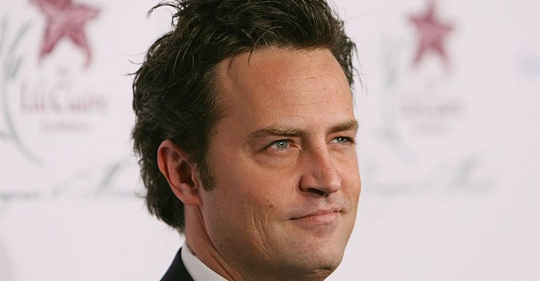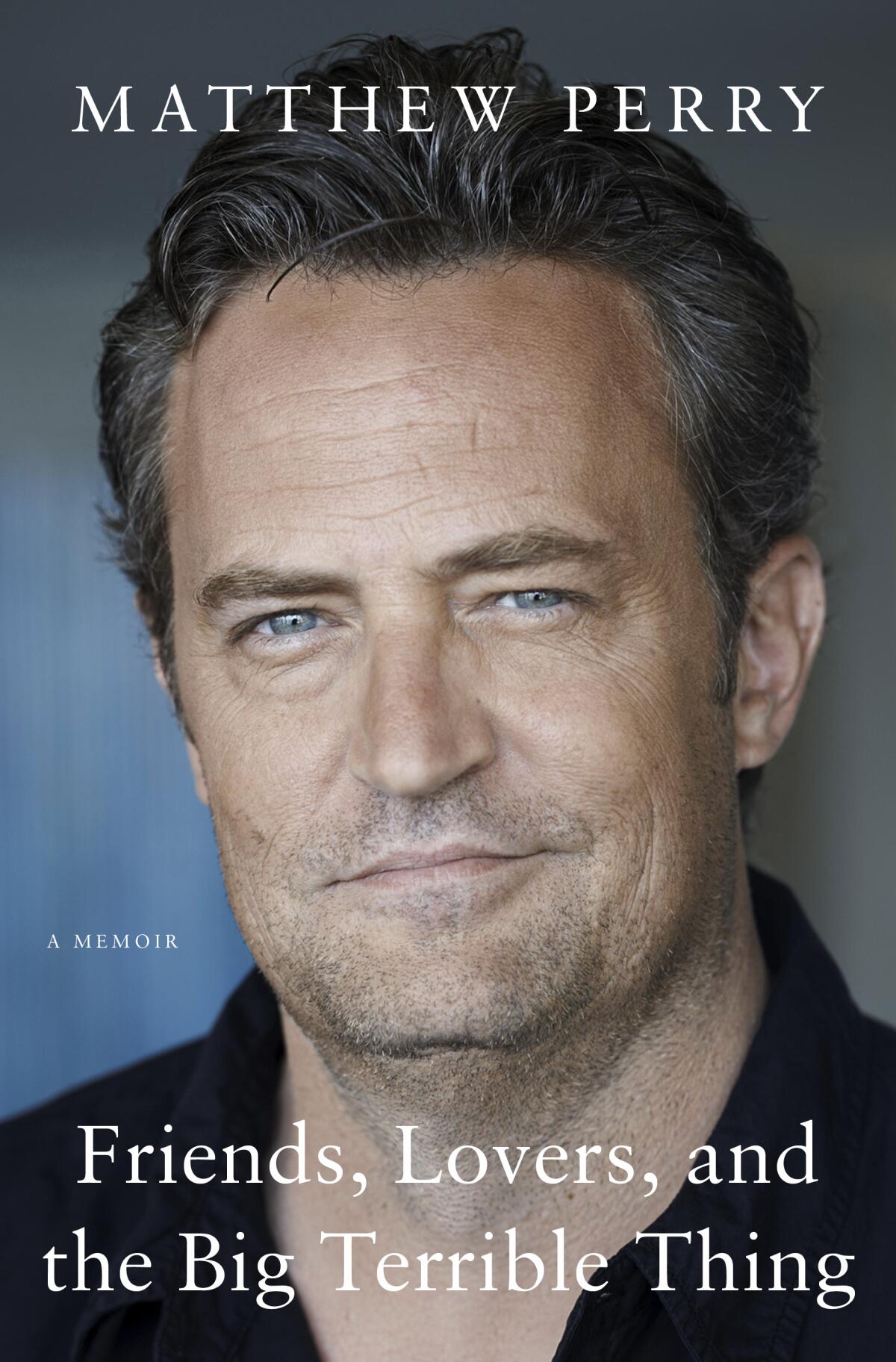Written by August Brown (LA Times)

(Photo credit: Good Morning America interview)
(NOTE from Blog Publisher)
We covered a news story last year, October 19th 2022, in which Matthew Perry admits to almost dying due to his addiction of opioids. The title was “Matthew Perry Reveals He Nearly Died After Opioid Abuse Burst His Colon” and within this story he discusses his struggles with addiction and how he overcame adversity. Mr. Perry has worked very hard to help people overcome addiction and the news of his passing is very sad and he will be missed. Matthew Perry was more than Chandler from Friends, he was a hard-working advocate for recovery and should be remember as such. Thank you.

Matthew Perry may be widely remembered for his role as the sweetly acerbic Chandler Bing on “Friends,” but for the millions of Americans who have struggled with addiction and sought recovery, the actor’s 2022 memoir might be his most impactful work.
Perry’s memoir, “Friends, Lovers, and the Big Terrible Thing,” published to great acclaim last fall, recounted his decades-long struggles with substances and his herculean recovery efforts. Within hours of the news of Perry’s death Saturday at age 54, readers flooded social media with tributes about the bravery of his book. Among the revelations: Perry estimated that he had spent more than $7 million over 15 rehab stays treating his addictions to drugs and alcohol.
The cause of death has not been determined. Responding officers found no illicit drugs at the Pacific Palisades home where Perry died. (A toxicology report is pending, and prescription medications recovered at the home will be part of the investigation, which is common practice.) At the time of the book’s release, Perry said that he’d been 18 months sober.

His memoir was an uncommonly candid, bracing look at how addiction can devastate even beloved cultural figures at the height of their fame. But it also emphasized how Perry found continued hope to push his recovery work forward through the very end.
“His life showed the worst of this illness, and the best hopes for our ability to overcome it,” said William C. Moyers, vice president of public affairs for Hazelden Betty Ford, the national addiction treatment center with facilities in Rancho Mirage and Los Angeles.
Moyers said he’d met Perry through the actor’s recovery advocacy and had praised him for his fearlessness in writing the book and in speaking so frankly about his struggles.
”His willingness to share his story so publicly captured the reality that hope is real,” Moyers said. “Regardless of what his cause of death is, he kept fighting and fell and got back up, and was never ashamed to share that truth.”
Amid the outpouring of grief from “Friends” castmates and fans, world leaders and others, many in addiction treatment said Perry’s death was a deep loss. They empathized with his commitment to keep seeking treatment even after setbacks in his recovery.
“Yes, he was Chandler,” actor Eric Lange wrote on X. “But, I hope what Matthew Perry will be remembered for most is that he used his platform to openly share his struggles with the world in the hopes it might help others. It helped me.”
Another memoir reader wrote on the platform formerly known as Twitter: “As a person in active recovery this stings. His book was the first one I read this year and proof that having endless resources are never a cure for addiction.”
And still another person wrote: “Went through a super low point where I regretfully thought long and hard about picking up late last year, didn’t thank heavens, and Matthew Perry’s recent memoir helped keep me sober. To say I’m gutted is an understatement.”
Even pop singer Adele paused her Las Vegas concert Saturday to share what Perry’s vulnerability about addiction had meant to her.
“He was so open with his struggles with addiction and sobriety, which I think is incredibly, incredibly brave,” she said onstage.
Perry shared painful details in his book, recounting his arc from “Friends” ultra-stardom in the ‘90s to a period in 2019 where, in large part because of his drug use, he spent two weeks in a coma with an exploded colon and endured a dozen stomach surgeries.
Even after one his proudest moments onscreen, he wrote, “I married Monica and got driven back to the treatment center — at the height of my highest point in ‘Friends,’ the highest point in my career, the iconic moment on the iconic show — in a pickup truck helmed by a sober technician.”
As recently as 2020, he wrote, after doctors administered propofol that interacted dangerously with hydrocodone already in his bloodstream, paramedics broke eight ribs administering CPR to save his life.
“The kind of message that I guess I give out with this book is don’t give up,” Perry said in an interview in November. “There’s help out there. I’ve been helped on a daily basis. If I didn’t get help, I wouldn’t be sitting here.”
Perry’s book earned comparisons to searing, intimate addiction memoirs by writers like David Carr and Leslie Jamison. Yet celebrity addiction memoirs can be a double-edged sword when it comes to inspiring recovery efforts, Moyers said. The resources that wealthy people can put toward sobriety are vast compared to what typical working people have to get effective care.
“There’s always a“There’s always a risk in having famous people share struggles with addiction, because most of us don’t live in that rare air,” Moyers said. “But all of us can relate to the struggles families have, and we know this illness that does not discriminate whether you’re Matthew Perry or a homeless person seeking treatment at the Salvation Army. We all relate to the brutality of this illness, and that like the rest of us, he kept picking himself up, and he was a better man for it.”
Readers of Perry’s memoir know that he barely avoided death on many occasions, as his illness proved formidable even after years of recovery work.
The book’s lessons in resilience and community support, and the example Perry set in his recovery and bravery in documenting it for all to read, should still hold true regardless of the circumstances of his death, Moyers said.
“Betty Ford told me back in the ‘90s that the most important reason we tell these stories is to reach other people,” Moyers said. “Matthew Perry told that story. We should celebrate that he had the life he did for 54 years, because he never gave up. This illness strips us of hope, but reading how supportive his colleagues were, and how he wouldn’t have made it if not for his friends and family, we should find great meaning in that and never give up on our loved ones.”
Times staff writerTimes staff writer Jen Yamato contributed to this report.
